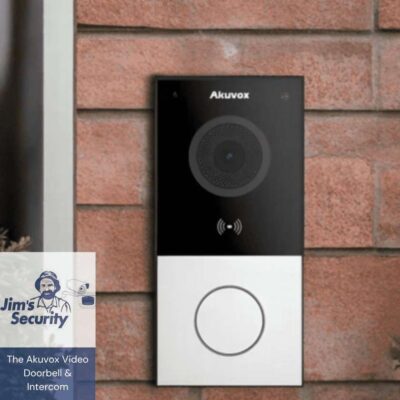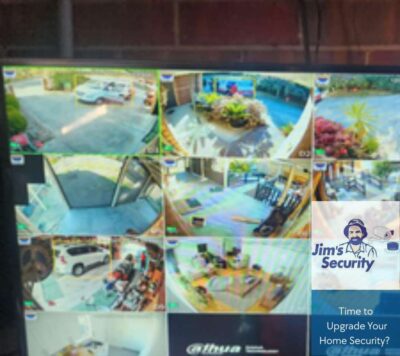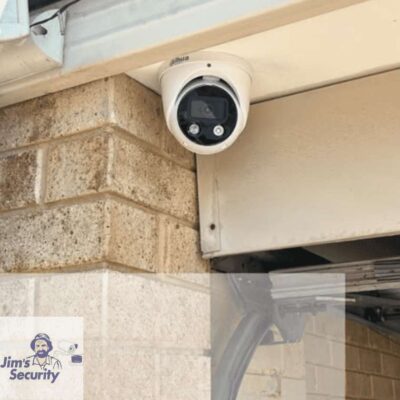Whether you are hoping to keep packages safe from porch pirates or wanting to keep tabs on who is turning up at your doorstep, video doorbells, otherwise known as intercom systems, provide an effective solution an affordable and effective solution.
When installing a video doorbell for long-term use, professional solutions are preferable to DIY products. Although a professional product may cost you more upfront, investing in a professional-grade intercom will likely save you time and money in the long-term. This is as DIY products can be unreliable as they often rely on battery power and WiFi rather than a wired source, typically only offer cloud based storage and not recording to a NVR and are often not vandal proof. However, when it comes to short-term solutions like renting, Ring’s Video Doorbells are a great option.
If interested in installing a professional-grade intercom system or ‘smart doorbell’, we would recommend choosing between the range of products available from Hikvision or Dahua as both brands offer outstanding products which can be integrated with the rest of your security system, at a reasonable price.
Both brands offer intercom products with largely similar features – however, the main difference between the two brands is that Hikvision’s intercom products offer slightly more advanced technology, making them a bit pricier and better suited to commercial installation compared to Dahua’s range. That said, Dahua is still a great option, especially for domestic installations. Another thing to keep in mind is that Dahua don’t manufacture alarms – meaning in most cases, a Dahua intercom can only be integrated with a Dahua CCTV system. Whereas Hikvision can be easily integrated with both a Hikvision alarm and CCTV system. Apart from these factors, the decision will largely depend on the preferred look for your door station and internal monitor.
Our Intercom Packages
Dahua and Hikvision Intercom Case Studies
With both brands offering a range of IP, 4-wire and 2-wire systems, the difference between these product ranges can sometimes be difficult for customers to understand. Below is a quick definition for each of these terms:
Analogue Intercom
Four-Wire systems refer to analogue systems. Here at Jim’s Security we recommend purchasing an IP-based system over an analog system, as these systems tend to have newer and more practical features. Aside from this, IP technology will improve the image and audio quality of your system.
Two-Wire (Analogue Upgrade)
The term two-wire refers to the fact that the intercoms only require two wires to run – one for power and one for audio/video transmission. A two-wire intercom is a great option if you are planning to upgrade an existing analogue system, as this type of intercom allows you to use your old wiring to access the full feature set of an IP based system.
IP Series
Since IP networks can transmit a larger amount of data, compared to analog and WiFi products, a higher video quality can be achieved. IP products also allow for CCTV system integration capabilities, remote entry (opening the front door from the door station) and the ability to manage your intercom from your smartphone.


